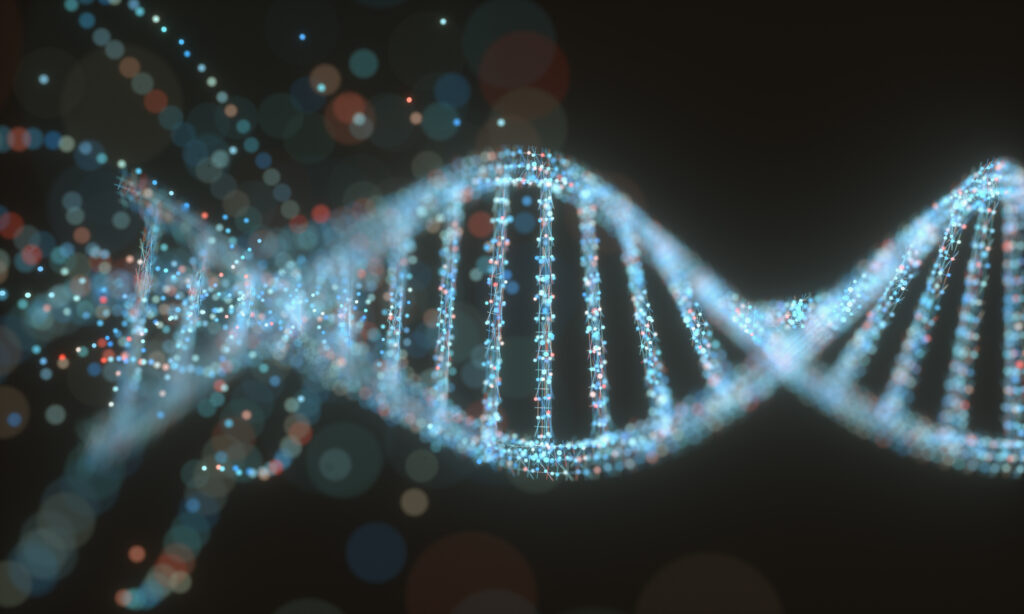How facial analysis screening and other new genetic analysis methods improve the accuracy of rare disease diagnosis.
What is genetic analysis?
Genetic analysis is a process by which an individual’s risk for developing a rare disease is assessed. The ultimate goal of genetic analysis is to understand more about an individual’s genetic health including whether they may be a carrier of a gene mutation, or at risk of developing a genetic syndrome themselves.
Genetic analysis is just one step in the diagnostic process. The process also includes genetic counseling and genetic testing.
Generally, genetic analysis will be a stepping stone to more targeted, and specific, genetic testing which will be able to identify a specific rare disease or gene mutation responsible for causing a rare disease.
Traditionally genetic analysis has not always been as accurate as it can and should be, to provide rare disease patients with a confirmed diagnosis, and the consequent support and care they need to manage that diagnosis.
What are some current genetic analysis methods?
There are currently several invasive and noninvasive genetic analysis methods. The most commonly known are probably those done during pregnancy. The nuchal translucency test, for example, which identifies the risk of a developing fetus being born with Down syndrome, is now a standard test during many women’s pregnancy care. Amniocentesis is an invasive genetic analysis method, usually performed due to the suspected or confirmed risk of a rare disease in a developing infant.
Recent years have also seen an increase in the availability of non-invasive NIPT testing, all of which try to identify, with high degrees of accuracy, an unborn child’s risk of developing a rare disease, and which specific one.
Other genetic analysis methods have relied on the experience and knowledge of doctors and genetic counselors to evaluate an individual’s family history, and, if any, symptoms of a rare disease, to analyze their genetic history and health. However, as much is still yet to be known about the exact causes and symptoms presentation of so many of the total 7,000 genetic syndromes identified so far, relying on this method of genetic analysis alone is not enough to improve the accuracy of genetic diagnosis.
The expertise and experience of genetic counselors are an essential part of the genetic analysis process. However, it is just one method, that should be part of a comprehensive process of genetic analysis for a diagnosis.
When it comes to current genetic analysis methods, the number one priority is, improving accuracy. A misdiagnosis, or even a delayed diagnosis due to inaccurate genetic analysis, can delay important support, care, and possible treatment for rare disease patients and their families.
The average rare disease patient spends up to 5 years in their diagnostic odyssey to reach an accurate and confirmed diagnosis. This extended amount of time spent seeking answers is one of the driving forces behind new, more accurate genetic analysis methods.
What are some new methods?
One of the newest genetic analysis methods currently available is the use of facial screening technology, to analyze a patient’s face for markers of a rare disease. This method combines powerful and secure AI technology, with a database of thousands of identified rare disease facial markers and symptoms. This then creates a genetic analysis report which identifies an individual’s risk of developing certain genetic syndromes.
Another new genetic analysis method is online genetic counseling. The importance of genetic counseling to the genetic diagnosis process can not be underestimated. Moving this essential service online, allows greater access to it by more people, in a quicker time.
What are some of the benefits?
Improved accuracy.
Facial screening recognition is more accurate than relying on a physical examination of unique facial features, or other symptoms. It can pinpoint and identify the facial markers of specific rare diseases, and assess a patient’s risk for each of them. This can then be taken to a genetic counselor, who based on the facial analysis, as well as a patient’s history, and symptoms, will be able to recommend the most targeted genetic testing.
This new genetic analysis method, in particular, provides genetic counselors with more accurate information to help a patient reach a diagnosis. This in turn improves the accuracy of the entire genetic diagnosis process.
Empowered patients.
Facial screening for genetic analysis requires nothing more than a simple photo upload. This can be done from any connected device, anywhere. This makes for ease of use but also means instant access to genetic analysis from the comfort of a patient’s home.
It also importantly empowers patients by providing them with direct access to genetic analysis and genetic counselors online. Not only does this reduce wait times, and mean a faster diagnosis time, but it allows patients to be more in control of their diagnostic process. Empowering patients also improves the accuracy of diagnosis.



